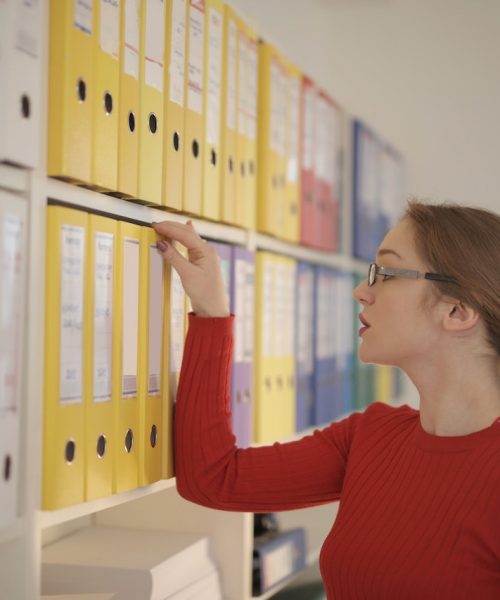There are a few categories of expenses that a sole proprietor cannot deduct from their business income. First, they cannot claim their living expenses or salary. Next, they cannot deduct any expenses that are not related to their business. Finally, they cannot deduct any personal expenses that are not related to their business. This is an important distinction to make because it can save you money on taxes.
Personal, living, or other expenses not related to the business cannot be deducted for tax purposes
If you are a sole proprietor in Canada, you can only deduct business-related expenses. For example, you cannot deduct the costs of renting a motor vehicle to conduct business. You cannot deduct the costs of collecting the rent if you own more than one rental property. However, you can deduct office expenses such as buying supplies for your business. You must make sure that you use these items in your business, as they cannot be deducted for personal purposes.
Tax laws vary from country to country, and there are often specific exemptions for expats. For example, an expat may be taxed in another country but still be liable for taxes if they return to their country of origin. In some cases, a taxpayer may even choose to forego citizenship to avoid paying tax.
One of the ways a sole proprietor can deduct business expenses is to use funds that were borrowed for business purposes to improve rental properties. These costs are called “soft costs” according to the Canada Revenue Agency and include construction, upgrades, or renovations that increase the property’s value or make it more readable. Another expense that a sole proprietor can deduct is interest on loans. However, the interest varies depending on the property’s use. If it is rented out for the whole year, then the mortgage interest can be claimed as a deduction.
Insurance premiums for the business’ property or for business beneficiaries are generally deductible for income tax purposes. In some cases, these premiums can be used as collateral for loan approval. Charitable donations to registered Canadian charities can also be deductible for business purposes.
If a sole proprietor in Canada rents property for profit, they may be able to deduct expenses related to the rental property, including legal fees to prepare leases, accounting fees, and consulting fees. These expenses can be deducted from the gross rental income, but legal fees for the purchase of rental properties are not deductible.
Capital assets are the main part of write-offs for small businesses in Canada
The main part of write-offs for small business owners in Canada is capital assets. These include buildings and equipment, machinery and fixtures, furniture, computers, and software. These are not written-off in one year but are depreciated over time at a rate prescribed by the Canada Revenue Agency (CRA). Small business owners should consider purchasing insurance as it can protect them against financial loss and maximize profits.
The equipment can be depreciated over a number of years
A sole proprietor in Canada may be able to depreciate large business equipment over a number of years. This process is known as capital cost allowance, or CCA. Depreciation of capital assets reduces taxable income and taxes payable by a business.
Computers are a good example of equipment that can be depreciated over a period of years. Depreciation is determined based on the amount used for business purposes and personal use. For example, if you spend $1,500 on computer equipment, you can depreciate it over three years for up to $400.
In most cases, sole proprietors can deduct up to 50% of the purchase price of their equipment. This method is more favorable than other methods for depreciation, but it may not be appropriate for the first years of business. Instead, it may be more beneficial to use the straight-line method for long-term tax benefits. If the business is growing, the straight-line method is recommended. However, if additional assets come along, the sole proprietor can always switch to MACRS.
General Business Liability insurance protects your business from lawsuits
General Business Liability insurance is an important type of insurance that protects your business from lawsuits. It covers your business from many different kinds of lawsuits, including lawsuits arising from products and services that you sell. Whether your business is large or small, you need liability insurance to protect yourself against lawsuits. This type of insurance will cover you in case someone is injured while visiting your premises or if someone is injured while working in your establishment. It will also protect your employees and directors.
The cost of a liability lawsuit can be devastating, especially for small businesses. Even if you are not at fault, the lawsuit costs can add up quickly. In these cases, liability insurance will cover your legal defense costs, including any awards, non-monetary losses, and punitive damages. It can also protect your business from claims related to misleading advertising, copyright infringement, or physical damages caused by physical disasters.
Having General Business Liability insurance can protect you against these lawsuits and keep your business running smoothly. It can also protect your personal assets from legal actions. It can cover you against mistakes made by employees, as well as a broad range of other claims. This type of insurance is essential if you’re worried about losing your money or reputation because of a lawsuit.
General Business Liability insurance can be purchased separately or as part of a business owner’s policy. A business owners policy will bundle general business liability insurance with commercial property insurance. The cost of this coverage will depend on the type of business you own and operate. Choosing the right type of policy will protect your business from many legal costs.
General Business Liability insurance is an important investment for any business. It protects your business from lawsuits, and it also gives your business an edge over the competition. Many larger clients will only do business with businesses with insurance coverage. In addition, some states and cities require that you have general liability insurance before signing any contracts.
General Business Liability insurance is important for small businesses because it protects against lawsuits that result from property damage or bodily injury. Even a small accident can land your company in court and cost your business a lot of money. Even a small slip and fall claim can cost upwards of $20,000, while a reputation damage lawsuit can cost as much as $50,000. General Business Liability insurance will cover these costs up to the limit of your policy.





























